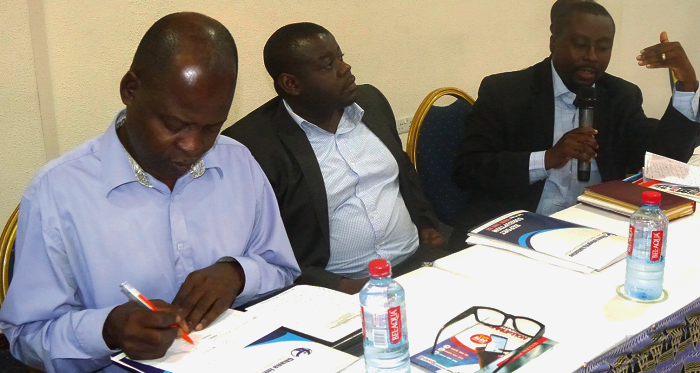
Appoint substantive heads to CHRAJ, NCCE — Dr Oduro
The head of Research and Programmes at the Centre for Democratic Development (CDD, Ghana), Dr Franklin Oduro, has questioned the rationale behind the government’s delay in appointing substantive heads for the Commission on Human Rights and Administrative Justice (CHRAJ) and National Commission for Civic Education (NCCE).
Advertisement
He also wondered why Ghanaians were not demanding for the speedy appointmet of substantive commissioner and chairperson for the two respective institutions.
According to him, the continuous delay in the appointment, coupled with the apathy of citizens in making demands for the positions to be filled, was a deficit in the effort to promote participatory governance, accountability and corruption reduction efforts at the national level.
He observed that while substantive heads had been appointed for the Bank of Ghana (BoG) and the Electoral Commission (EC), the two other institutions did not receive similar attention from the government and that the issue had not even been mentioned on the floor of Parliament, even though the two institutions report to the House.
Dr Oduro, who is also the deputy director of the CDD, made the observation during his submissions on “improving accountability and reducing corruption through participatory governance at the national level,” at a round table discussion organised by a consortium of anti-corruption institutions in the country.
The consortium is made up of the Ghana Integrity Initiative (GII), the Ghana Anti-Corruption Coalition (GACC) and Send Ghana.
It was organised under the Accountable Democratic Institutions and Systems Strengthening (ADISS) project of the United States Agency for International Development (USAID).
Concerns
A member of the Public Interest and Accountability Committee (PIAC), Dr Stephen Manteaw, noted that other equally important establishments such as the Petroleum Commission did not have substantive chief executives.
That, according him, could result in self-censorship because of the fear that the government or appointing authority would not confirm those in acting positions if they held contrary views from the government.
Strategies
Participants, at the end of the discussion, pledged to share information, resources and personnel to gain a better grasp of their efforts to fight corruption.
The meeting brought together activists working on various initiatives to discuss the activities they were engaged in to find possible ways of collaboration.
An official of the GII, Ms Joyce Danquah, said her outfit had trained people in communities in how to report on corruption.
According to her, the GII was also working with some investigative journalists to further probe reports on corruption and publicise them.
An Advisor, Domestic Accountability of the German Development Cooperation (GIZ), Mr Kweku Lartey Obeng, said the organisation had undertaken some initiatives to strengthen the capacity of the Public Accounts Committee (PAC) of Parliament.



